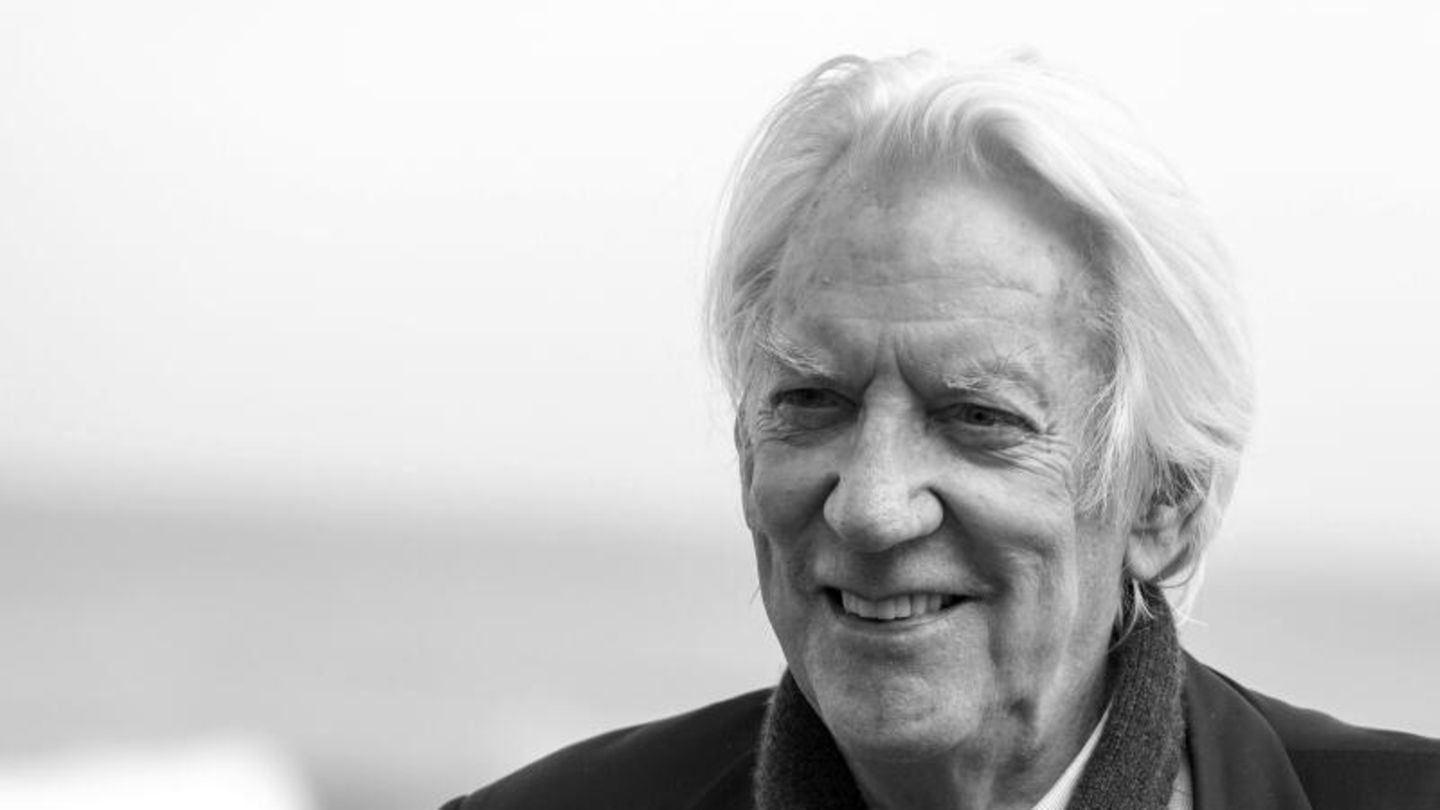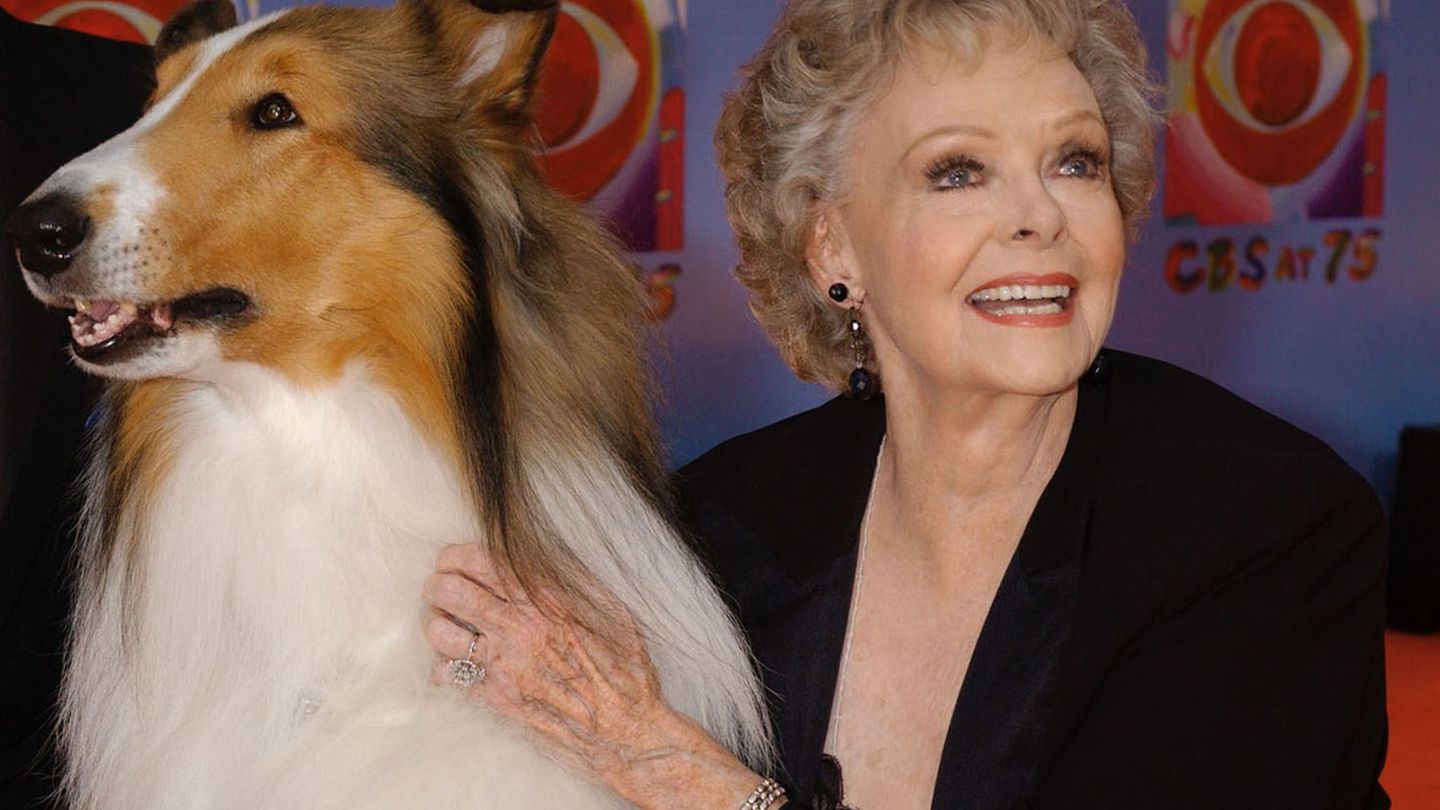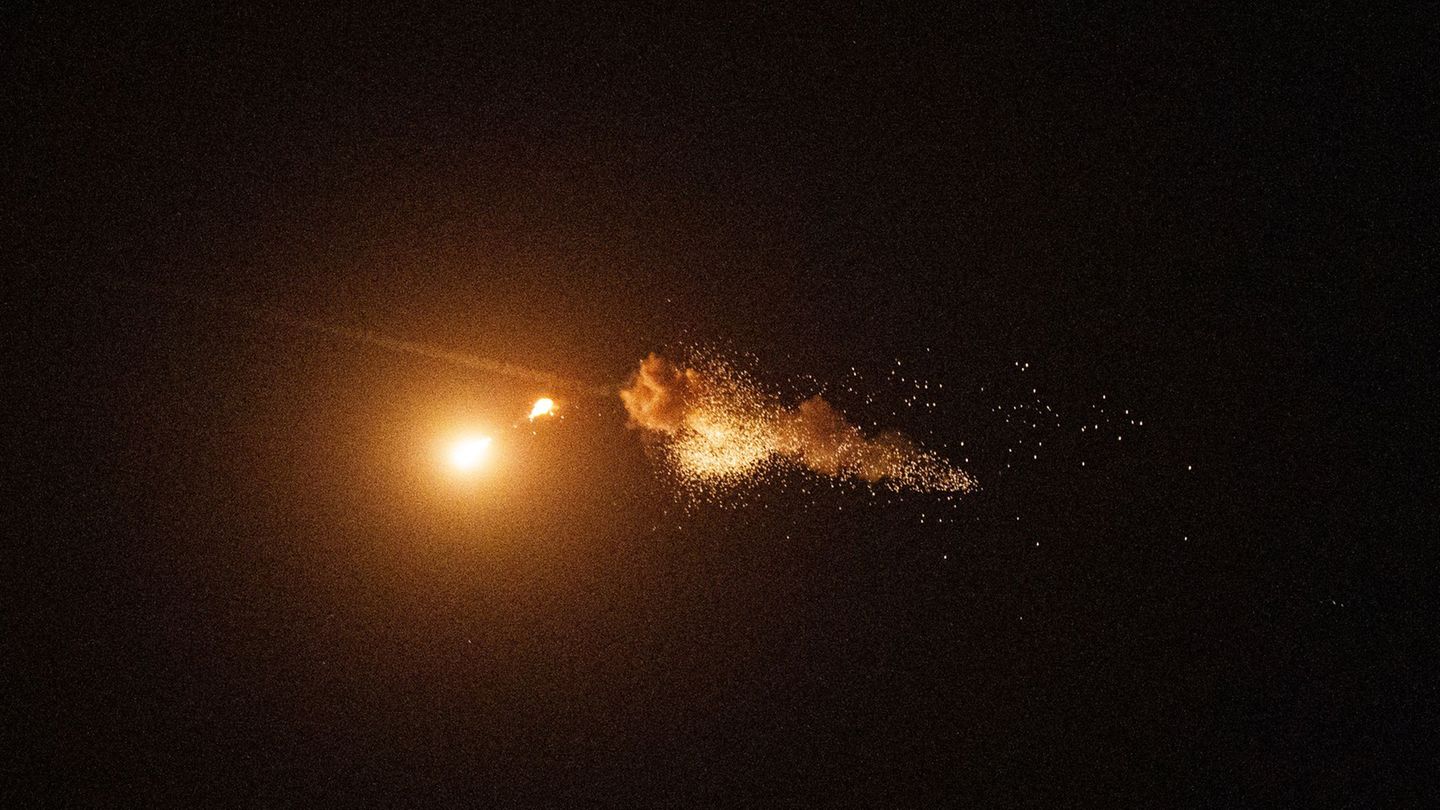Canadian Donald Sutherland made an international name for himself with films such as “The Dirty Dozen” and “The Hunger Games”. Now the actor has died at the age of 88.
Donald Sutherland was still able to inspire people well into old age, even with snow-white hair. On Thursday, Sutherland died in Miami at the age of 88 “after a long illness”, as reported by the British news agency PA, citing his agent.
Son Kiefer about his father Donald Sutherland: “A life well lived”
The equally successful actor Kiefer Sutherland made his father’s death public with emotional words on X:
“It is with a heavy heart that I inform you that my father, Donald Sutherland, has passed away. I personally consider him to be one of the most important actors in the history of film. He was never intimidated by a role, good, bad or ugly. He loved what he did and did what he loved and that is all you can ask for. A life well lived.”
Star in films such as “The Dirty Dozen”, “The Hunger Games” or “MASH”
Sutherland, who was born in 1935 in the Canadian province of New Brunswick and has won numerous awards, is known for his roles as the unscrupulous President Snow in the “Hunger Games” blockbuster series. Power and revolt are central themes in the dark fantasy saga, in which young people are sent to an arena for the Hunger Games to kill each other. The ultra-liberal Canadian also wanted to make a difference with his role. “I hope that young people learn from this that they absolutely have to get involved in politics. That they have to organize themselves,” Sutherland told the German Press Agency at the Berlin premiere in 2015.
He made headlines with a love scene in Nicolas Roeg’s horror study “The Gondolas in Black” (1973). Sutherland and Julie Christie played a married couple mourning their dead daughter. A legendary sex scene in the film was believed by many to be real, which Sutherland and others always denied.
Federico Fellini made him “Casanova,” Bertolucci made him the fascist landowner Attila in the drama “1900.” Robert Redford brought him in front of the camera for his directorial debut “Ordinary Family.” He cracked safes with Charlize Theron in the crime thriller “The Italian Job.” Everyone wanted to work with Sutherland, including legendary directors such as Claude Chabrol, Louis Malle, Ken Russell, John Schlesinger and Werner Herzog.
Since the 1960s, the father of five had acted in over 150 films and TV productions – and served every genre with enormous versatility. The war classic “The Dirty Dozen” (1967) was his first international success. Robert Altman’s military satire “MASH” was another hit. In 1971, he shone as a private detective in Alan Pakula’s psychological thriller “Klute” alongside Jane Fonda.
He was denied the Oscar
The two-meter-tall man never minced his words. When he received an honorary award for his life’s work at the film festival in San Sebastián, northern Spain, in 2019, he lamented the “bullshit” attitude of politicians in the fight against climate change: “I have children, I have grandchildren, and the world I am leaving them is one they cannot live in.”
In 2011, he was immortalized with a star on the Hollywood Walk of Fame, right next to his son Kiefer’s plaque. But the highest honor – an Oscar – never came. Despite his many outstanding roles, Sutherland has never been nominated for an Oscar. In 2017, the Film Academy honored him outside of the competition with an honorary Oscar for his life’s work.
Looking back on his long career, Sutherland was asked in San Sebastián if he had a favourite film. The father of five denied the question, saying that he couldn’t say whether he had a favourite child. “I don’t have a favourite. I have close relationships with all of them,” he said diplomatically. And after a short pause he added, “but I really enjoyed working with Fellini.”
Note: This article has been updated several times.
Source: Stern
I am an author and journalist who has worked in the entertainment industry for over a decade. I currently work as a news editor at a major news website, and my focus is on covering the latest trends in entertainment. I also write occasional pieces for other outlets, and have authored two books about the entertainment industry.




